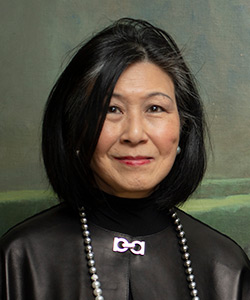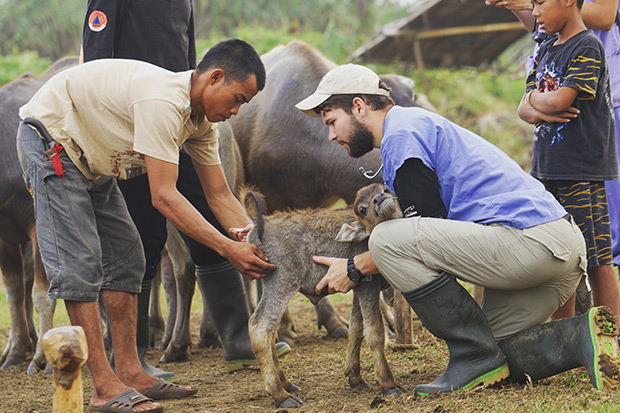Cornell wildlife health center receives $35M endowment
Updated February 28, 2024
In February, Cornell University announced a $35 million gift to endow and name the Cornell K. Lisa Yang Center for Wildlife Health at the university’s College of Veterinary Medicine.
Yang’s endowment—the largest in the veterinary college’s history—will expand the center’s efforts “to advance science into policy and action, train future wildlife health leaders, and provide opportunities for student experiential learning,” according to a university statement.
Led by Dr. Steven Osofsky, professor of wildlife health and health policy at the veterinary college, the center supports more than 25 wildlife health professionals from a range of disciplines, with an emphasis on impact and fostering wider partnerships.
“We are working with partners in the U.S. and around the world in a concerted effort to promote environmental stewardship, build capacity for sustainable change through training and education, and to achieve real-world conservation and development outcomes,” he said. “We work with farmers, economists and other social scientists, ecologists, local governments, national governments, multilateral agencies, nongovernmental organizations, the private sector, and so on. We certainly don’t believe academia has all the answers.”
Conservation is an “all hands on deck” endeavor, Dr. Osofsky added. He emphasizes to veterinary students not only the importance of multidisciplinary teamwork, but also the humble recognition that most of the “wicked” problems society faces—problems we as humanity have usually caused, of course—will not be solved by any one discipline alone.
“When new veterinary students first arrive on campus, I think many of them think that wildlife conservation is about wildlife,” Dr. Osofsky said. “Most of them learn over time that fostering meaningful stewardship of our natural world, given how important that is to, for example, public health and sustainable development goals, depends upon our ability to genuinely communicate with local communities, to listen, and on our ability to think and act with empathy."
“We try and make sure those students who seek a career in conservation get out into the real world as part of their training, and we are now able to support such experiential learning for more students than ever.”
As Dr. Osofsky told the Cornell Chronicle, “We will utilize the opportunities this incredible gift provides to work on tilting the scales back toward the type of environmental stewardship we ourselves need to survive as a species.”
Yang’s gift will support Cornell veterinary faculty and students as well as establish the Cornell K. Lisa Yang Wildlife Health Fellows Program, which will create 14 fellowship opportunities for veterinarians, postdoctoral researchers, and graduate students.
In addition, it will be used to create a Catalyzing Conservation Fund—an internal grants program that will provide seed money for critical wildlife health programs led by veterinary faculty and staff—and provide five years of support to the Cornell Wildlife Health Center Student Support Fund.
“Supporting and endowing the Center for Wildlife Health helps send a message that wildlife and human life, conserving our natural environment, and abiding by more mindful economic practices are critical if we are to leave a viable planet for our children,” said Yang, a member of the Cornell board of trustees and a lifetime member of the Cornell University Council.



